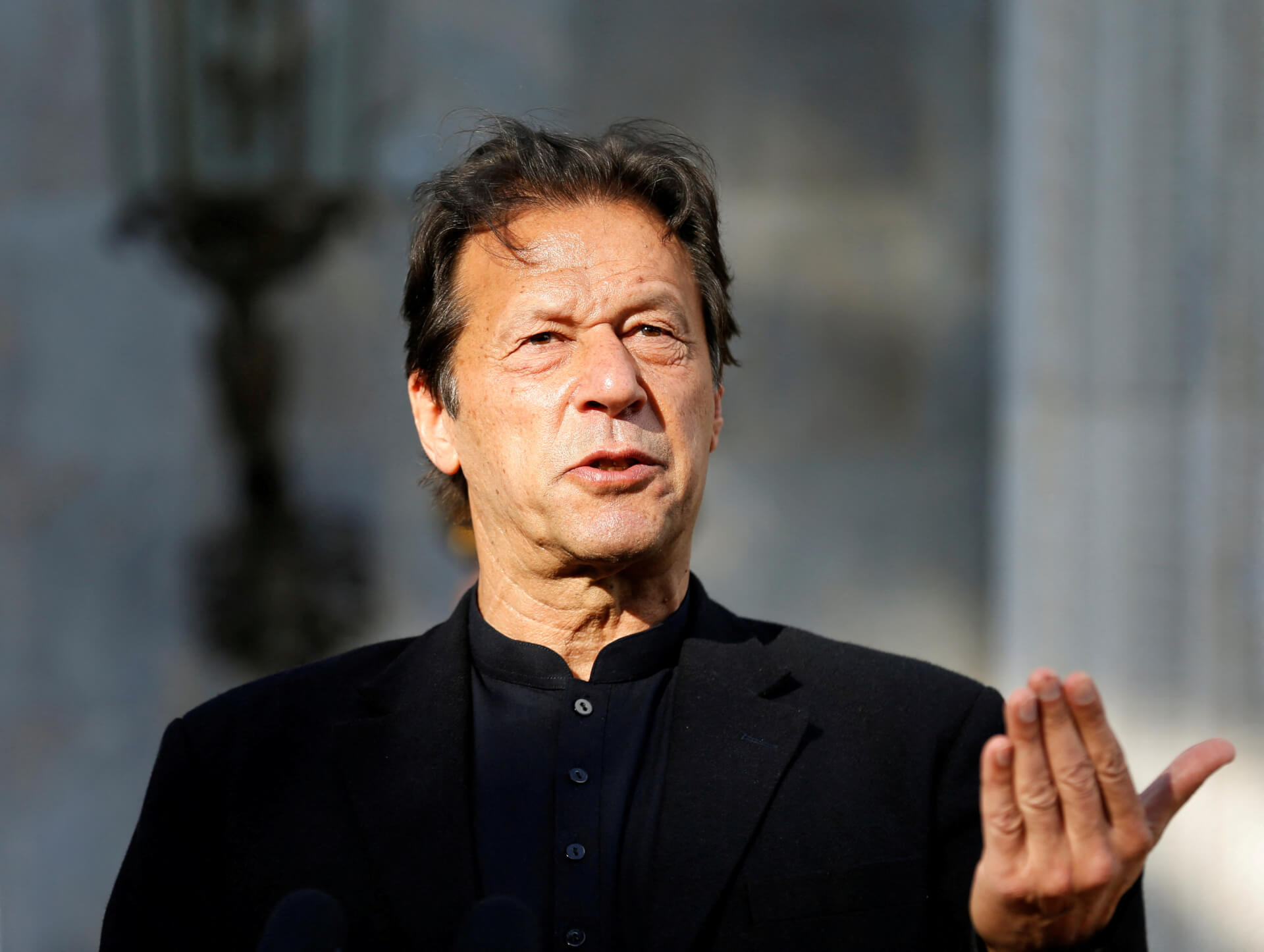Pakistan’s Election Commission (ECP) ruled on Tuesday that former Prime Minister (PM) Imran Khan had received illegal foreign funding from 34 foreign nationals and 351 foreign companies from several countries, including the United States, the United Arab Emirates, the United Kingdom, and Australia. It also demanded a response from his Pakistan Tehreek-e-Insaaf (PTI) party on why the body should not confiscate the donations.
The three-member ECP bench, led by Chief Election Commissioner Sikander Sultan Raja, reached a unanimous decision. Besides declaring Khan guilty of accepting the foreign funds, the watchdog also urged the ECP to “initiate any other action under the law.”
ECP in Para 50 of order has clearly held that PTI has received prohibited funds from foreign companies & individuals including that of Indian Origin. It has also held that Imran Khan had submitted documents which were grossly incorrect. Sec 212 of Elections Act is important now pic.twitter.com/RJALUoJV7c
— Murtaza Wahab Siddiqui (@murtazawahab1) August 2, 2022
The panel said that the PTI had links to 12 “unknown” bank accounts and was a “willing recipient” of $2,121,500. Among others, the party received funds from the Emirati Bristol Engineering Services, Australian Dunpec Limited, British SS Marketing Manchester, and Cayman Island-based E-Planet Trustees, all of which were “hit by prohibition and in violation of Pakistani laws.” This was in contrast to a certificate signed by Khan that declared that the party “does not receive funds from prohibited sources,” including foreign bank accounts.
In this regard, the ECP said that PTI chief Khan’s submissions were “inaccurate and wrong.” The election watchdog asserted that Khan’s PTI “continued to conceal and withhold complete and full disclosure of [the] source of its funds” during reviews over the past five years. Furthermore, it held that the party had violated its constitutional mandate to declare PTI leaders’ three bank accounts and 13 other party-affiliated accounts, which it said was a “serious lapse.”
The case was filed by founding party member Akbar S. Babar in November 2014 and accused Khan of raising at least $3 million via illegal foreign funds. The electoral watchdog made the decision after 95 hearings spread over four years and eight volumes of records submitted by the State Bank of Pakistan.
Following the decision, Babar said that the verdict was a “victory” in the “battle of truth versus might.” He argued that while there was no personal benefit for him, the decision was a win for Pakistani politics. He thus called on Khan to resign as the PTI chairperson and demanded a “regime change.”
ECP verdict on PTI foreign funding case chargesheets Imran Niazi for violating the Constitution, submitting false affidavits & accepting foreign money. Proven yet again that he is a certified liar. Nation should ponder over the implications of his politics funded by foreigners.
— Shehbaz Sharif (@CMShehbaz) August 2, 2022
Members of the Pakistan People’s Party (PPP) and the Pakistan Muslim League-Nawaz (PML-N) coalition also celebrated the verdict and vowed to act on the order. Information Minister Marriyum Aurangzeb said the verdict proved that Khan had “stoked anarchy in Pakistan through illegal foreign funding.”
PM Shahbaz Sharif further said the ECP had proven that Khan was a “certified liar” and urged citizens to “ponder over the implications of his politics funded by foreigners.”
The government also put Khan and other party leaders on the ‘no fly’ list.
Meanwhile, PTI’s Secretary-General Asad Umar vowed to challenge the verdict in two petitions to the Islamabad High Court. The first petition will question the ECP’s failure to simultaneously issue a verdict on foreign funding received by PPP and PML-N, arguing that the Commission had violated instructions from the Supreme Court and the high court. The second petition will challenge the verdict and its “deficiencies of law and facts.”
Furthermore, PTI leader Fawad Chaudhry clarified that Pakistanis abroad had sent the funds and questioned why the ruling parties have “declared overseas Pakistanis the enemy.” He asserted, “We consider overseas Pakistanis to be the backbone of Pakistan’s economy and will continue to rely on them for our funding.”
The biased CEC has destroyed ECP's credibility as he has gone beyond jurisdiction of ECP simply to target Imran Khan & PTI while refusing to follow court orders & examine other parties funding sources & accounts. Do your damnest, people stand with IK & PTI. That is crooks fear! pic.twitter.com/DtFUOaFT0H
— Shireen Mazari (@ShireenMazari1) August 2, 2022
Khan, meanwhile, has criticised the ECP and raised questions about its independence for weeks. Since the panel reserved its decision in June, the PTI has called for the Chief Election Commissioner to be ousted, calling him “incompetent” and “dishonest.” To this end, last week, Punjab and Khyber Pakhtunkhwa, both provinces where the PTI holds a majority, passed resolutions against Raja.
Moreover, on Monday, Khan called for a protest outside the ECP’s office and urged PTI supporters to demand Raja’s resignation. In response, the government deployed 1,000 police officers and an anti-riot force in preparation for the verdict.
These developments shortly follow the government’s devastating loss to PTI in provincial elections in Punjab last month.

